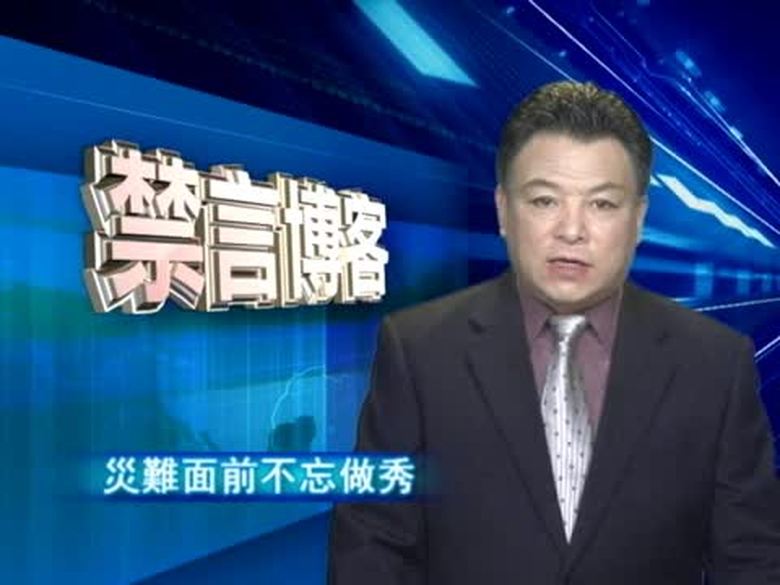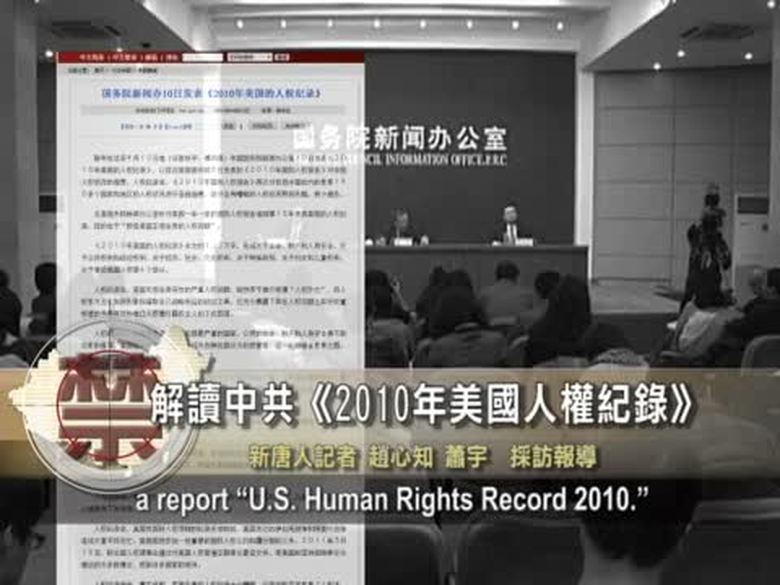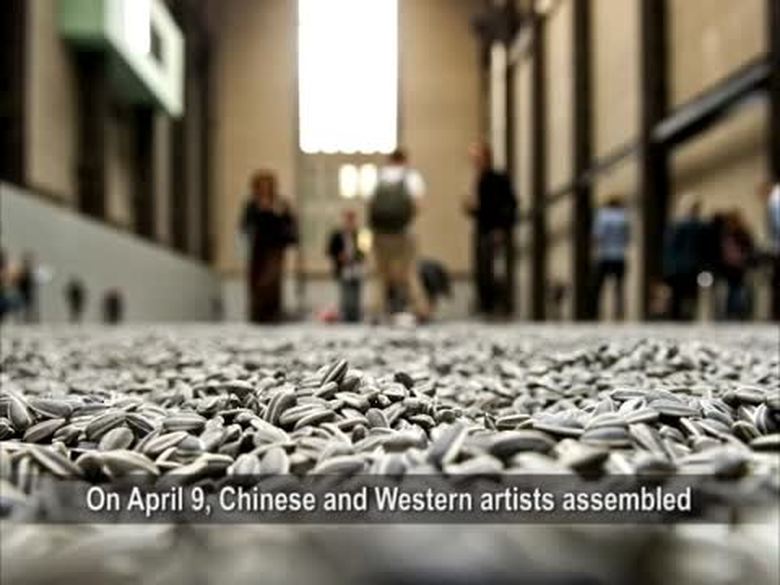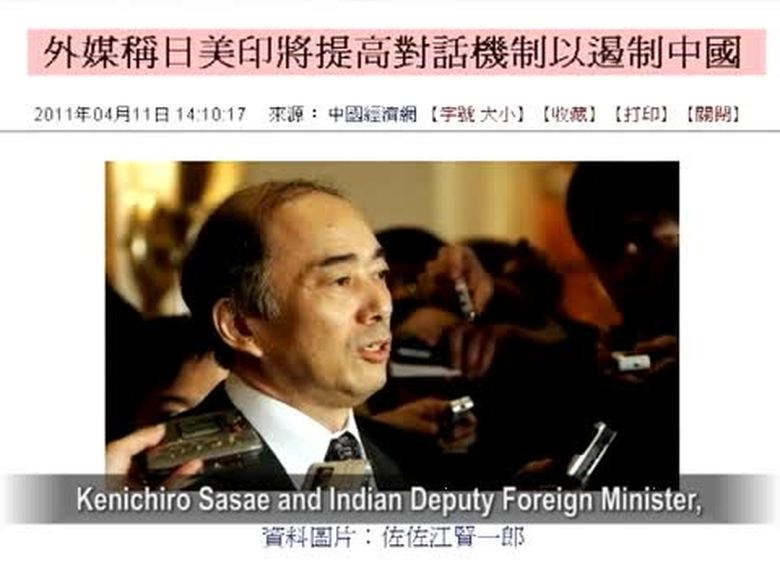【新唐人2011年4月11日訊】當全世界都在關注中國維權藝術家艾未未下落時,美、中兩國再就人權問題隔空交火。美國國務院剛公布的年度人權報告中,措辭嚴厲批評中國人權狀況急劇惡化。中共外交部則又以一貫的說詞——「干涉別國內政」來反駁。請看報導。
美國國務院在8號,向國會提交了194個國家及地區的《2010年度國別人權報告》。這份長達2百萬字,超過7千頁的報告中,有145頁談及中國,並且批評中共在人身、言論、宗教、網絡等自由上,延續負面發展趨勢。
4月9號,中共外交部發言人洪磊就美國的批評做出了回應。説辭仍是與往年一樣,他聲稱:華盛頓不要以「人權教師爺」自居,停止借人權報告等方式干涉別國內政。
美國這份人權報告認為,中共當局在過去1年來,除了加強對言論自由的管制,和更加嚴控網路和新聞自由外,政治異議人士與維權律師也持續面臨非法拘押、不當訊問、軟禁,甚至連家人也被殃及。特別是在某些具有政治敏感性的節日與地點,中共的管制行為更為明顯。
報告中舉艾未未、高智晟為例,說明中國多名失蹤異見人士仍下落不明,而且指出,失明的維權律師陳光誠及他的家人,仍然繼續遭到軟禁。
美國國務院這次對中共的批評,還罕見的出現多個激烈的用詞,例如「黑獄」﹔和,將犯人折磨與屈打成招﹔以及,禁錮和騷擾記者、作家、異見者、上訪者,和一切使用和平手法尋求公義的人民﹔還有,司法制度欠缺合理程序﹔法院和法官聽命於政治﹔閉門審訊﹔以行政手段禁錮人民﹔限制人民集會、宗教以及旅遊的自由。人權報告在中國這一章的引言最末一句話是:「貪污仍然無所不在。」
同時,聯合國人權小組「強迫或非自願失蹤」工作組,也公開關注中國最近一波逮捕維權人士及律師的行動。這個小組警告,根據國際法,所謂的強制失蹤屬於犯罪。「強制失蹤或非自願失蹤」工作小組說,他們正式抗議中共「持續壓迫異議人士」 這種「令人髮指的做法」,並對這些受迫害人士提供補償。
這個小組提到,過去的例子包括第11世班禪喇嘛根敦確吉尼瑪。他於1995年以6歲稚齡失蹤,至今下落不明。而人權律師高智晟過去2年時間,大部分都不知去向等。
國際社會近期也繼續就人權問題向中共施壓。其中,澳大利亞總理吉拉德,向到訪的中共全國政協主席賈慶林表示,澳洲會繼續支持任何國家的公民,表達政見的權利,希望北京當局能確保公民的權利得到保障。
新唐人記者王子琦、李若琳綜合報導。
U.S. Criticizes China』s Human Rights Record
As the world inquires for Chinese artist Ai Weiwei』s,
China』s human rights record is again under fire.
Recently, the U.S. State Department released
its annual human rights report
where Beijing was harshly criticized.
Chinese Foreign Ministry responded:
this is interfering with China』s internal affairs.
April 8, the U.S. State Department released
『2010 Country Reports on Human Rights Practices』.
Of the 7000-page report, 145 pages
were about China. It said that the negative trend in
key areas of China』s human rights record continues.
On April 9, China Foreign Ministry spokesman,
Lei Hong, responded with the same statement
as that of last year. He said: "The U.S. should stop
being a human rights teacher.
Stop interfering in other countries' internal affairs
with human rights reports."
The report says in the past year the Chinese regime
increased efforts to limit freedom of speech
and to control the press and Internet. It resorted
to extralegal measures including detention,
and house arrest to silence political dissidents
and public interest lawyers, even their families
were also oppressed. Especially with regard to
politically sensitive dates or places,
the Chinese Communist Party』s (CCP)
repression can be seen plainly.
The report cited Ai Weiwei and Gao Zhisheng』s
disappearances and said that legal activist
Chen Guangcheng, along with his family,
remained under house arrest.
For the first time, the report used some harsh words
like, “black jail,” torturing prisoners for confessions,
detaining and harassing journalists, dissidents,
petitioners and justice-seeking citizens, biased
criminal justice system, convictions handed down
to courts and judges, closed door trial,
strict restriction on political freedom,
religious freedom and travel freedom.
The introduction of China chapter ended
with “corruption remained endemic.”
Meanwhile, UN』s Working Group on Enforced
or Involuntary Disappearances has been
paying attention to China』s recent arrests
of dissidents and lawyers. The Group warned
that the enforced disappearance was a crime.
it officially protested CCP』s continuing oppression
of dissidents, and it provided support to victims.
The Group said that past examples include
the 11th Panchen Lama, Gendun Choekyi Nyima.
He has been missing since 1995, when he was 6.
Human rights lawyer Gao Zhisheng too
has been missing for most of the last two years.
China』s human rights issue is still a hot topic.
Australian Prime Minister Julia Gillard told
Jia Qinglin, Chair of China Political Consultation
Committee, in his recent visit to Australia,
that Australia hopes Beijing can protect
its』 citizens』 basic human rights.
NTD reporters Wang Ziqi and Li Ruolin
看下一集

【禁言博客】災難面前不忘做秀

【禁聞】中國航母接近出臺 具諷刺像徵意味

【禁聞】中國航母接近出臺 具諷刺象徵意味

【禁聞】解讀中共《2010年美國人權記錄》

【禁聞】輿論:“一枚被綁架的葵瓜子”

【禁聞】缺工嚴重 臺商外移東南亞、印度

【禁聞】日美印對話框架 應對中共

【禁聞論壇】中國將爆發銀行業危機?

【禁聞】深圳驅逐八萬人 律師:不合法

【禁聞】學者:中國投資有風險 商家要小心

【禁聞】學者:中國投資有風險 商家要小心

【禁聞】悼「養父」 再曝江澤民二姦二假

【禁聞】悼「養父」 再曝江澤民二奸二假

【禁聞】霸道或心虛?中共拒異見者歸國

【禁言博客】孩子的貪官夢

【禁聞】IMF警告中國資產泡沫與破裂風險








